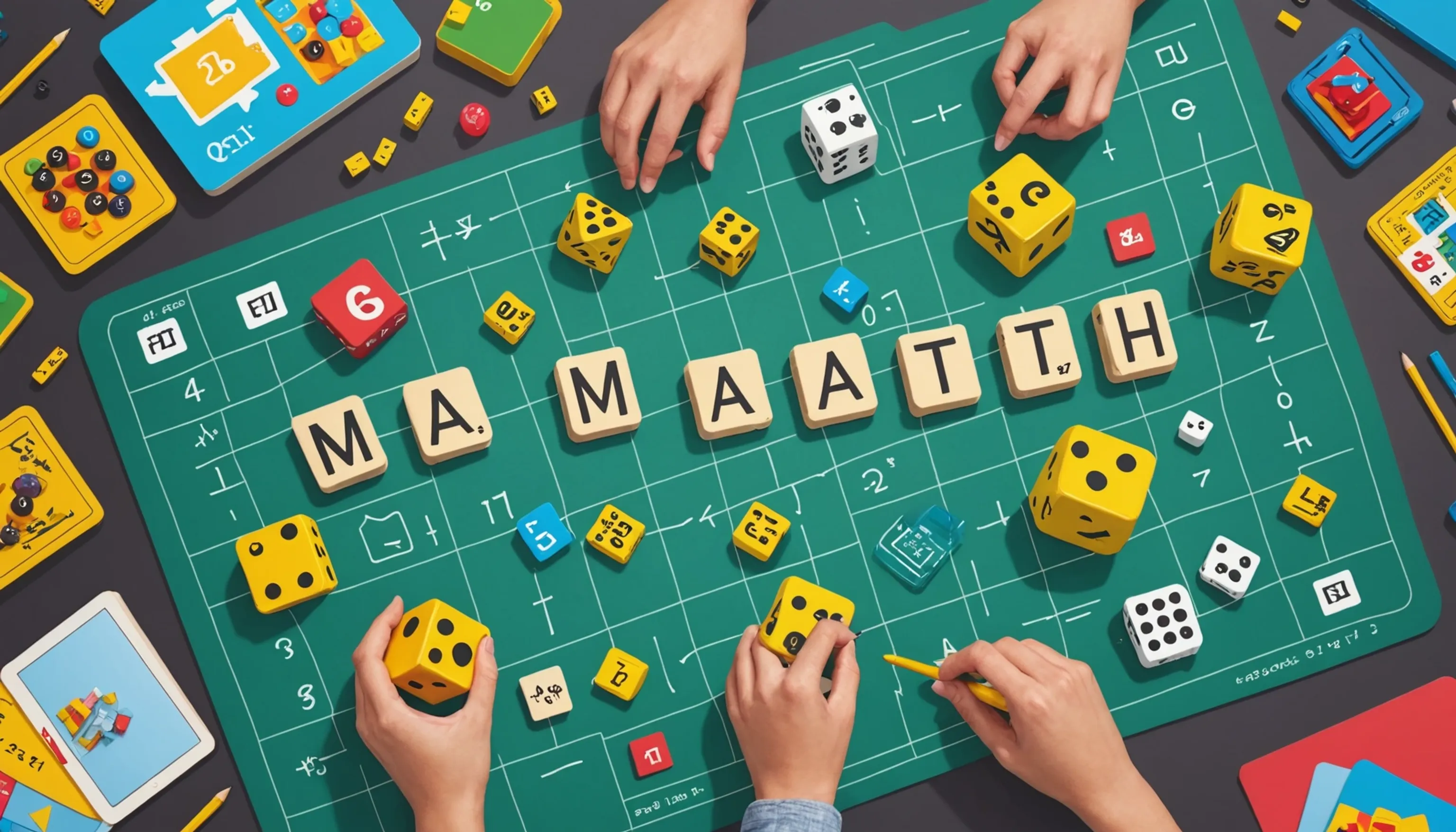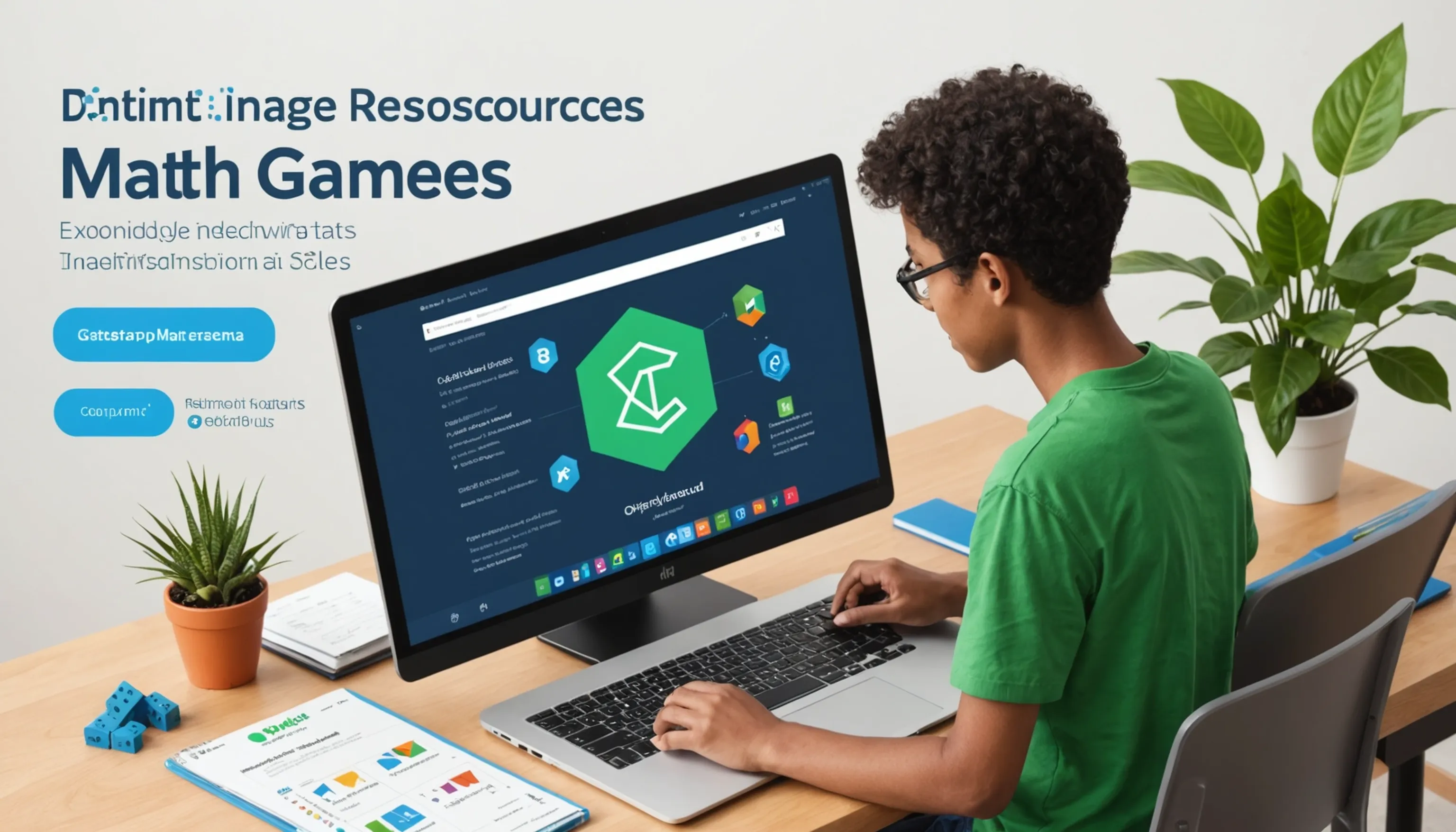How to Find Good Math Games
 HvWHenry van Wagenberg
HvWHenry van Wagenberg
How to Find Good Math Games for Teens
Finding good math games for teens can be a fun and rewarding process. Start by considering the interests of your teen; games that align with their hobbies will likely engage them more. Look for games that offer a balance of challenge and enjoyment. Websites that specialize in educational resources often have sections dedicated to math games. You can also check online reviews and recommendations from teachers or educational blogs.
Additionally, consider games that promote collaboration, encouraging teens to play with friends or family, making learning both social & enjoyable.
Benefits of Math Games for Teenagers
Math games offer numerous benefits for teenagers, enhancing their learning experience while making mathematics enjoyable. One of the primary advantages is that they promote critical thinking & problem-solving skills. When teens engage with games, they must strategize and apply mathematical concepts to succeed, which deepens their understanding of the subject.
Additionally, math games can boost motivation and interest in mathematics. Traditional learning methods may sometimes feel tedious, but games introduce an element of fun & excitement, encouraging teens to practice & improve their skills without the pressure of formal assessments. This approach can lead to increased confidence in their mathematical abilities.
Another significant benefit is the opportunity for social interaction. Many math games can be played in groups or pairs, fostering teamwork & collaboration. Teens learn to communicate their thought processes and strategies, which can enhance their overall communication skills.
Furthermore, math games can cater to various learning styles. Whether a teen is a visual learner who benefits from graphical representations or a kinesthetic learner who thrives on hands-on activities, there are games available that can meet their needs. This inclusivity ensures that all students can find a way to connect with the material.
In summary, incorporating math games into learning not only makes mathematics more engaging for teenagers but also supports essential skills that will benefit them throughout their education & beyond.

Types of Math Games Available
There are various types of math games available that cater to different learning styles, preferences, and age groups. Understanding these types can help parents and teachers select the most suitable games for teenagers.
1. Board Games: These traditional games often incorporate math concepts in a fun and engaging way. Games like Monopoly and Math Bingo require players to use math skills to progress, making learning interactive and enjoyable.
2. Card Games: Card games such as Math War or Set challenge players to apply mathematical strategies and quick thinking. These games can be easily adapted to different skill levels.
3. Online Games: Numerous websites offer interactive math games that can be played on computers or tablets. Platforms like Khan Academy and Prodigy provide a variety of math challenges, making it easy for teens to practice at their own pace.
4. Mobile Apps: Many educational apps are available for smartphones, allowing teens to play math games on the go. Apps like DragonBox and Mathway combine fun gameplay with math challenges, perfect for busy schedules.
5. Physical Games: Incorporating movement into math learning can enhance engagement. Games like Math Relay involve physical activity while reinforcing math concepts.
These diverse types of math games can help make math learning a more enjoyable and effective experience for teenagers.
Where to Look for Math Games
When searching for math games, there are several excellent sources to consider. Start by exploring educational websites like Coolmath Games and Math Is Fun, which offer a wide variety of interactive math games tailored for different skill levels. Online marketplaces, such as Amazon, provide numerous board and card games designed to enhance math skills. Local bookstores often carry educational games as well. Additionally, check with your child’s school or library, as they may have resources or recommendations for math games that can be borrowed or accessed.

Online Resources for Math Games
Online resources for math games have become increasingly popular, offering a plethora of options for teenagers to enhance their math skills in an engaging manner. Here are some of the best resources available:
1. Khan Academy: This well-known platform provides a wide range of interactive math games and exercises tailored to various grade levels. The games are designed to reinforce concepts and track progress, making learning personalized and effective.
2. Prodigy: Prodigy is a free math game that combines role-playing elements with math challenges. Students embark on quests and solve math problems to progress, making it a fun way to practice math in a game-like environment.
3. Math Playground: This website offers a variety of math games that cover topics from basic arithmetic to more advanced concepts. Games are categorized by grade level, making it easy to find suitable options for teens.
4. Coolmath Games: Known for its unique and entertaining math games, Coolmath Games provides a fun way to learn math concepts through puzzles and challenges. The games are designed to be both educational & enjoyable.
5. IXL: While primarily a learning platform, IXL also includes interactive math games that adapt to each student’s level. It provides immediate feedback, helping teens understand their strengths & areas for improvement.
These online resources not only make math learning enjoyable but also provide valuable practice opportunities that can help teenagers excel in their studies.
Mobile Apps for Math Games
Mobile apps for math games are an excellent way for teenagers to practice math skills anytime and anywhere. These apps offer interactive and engaging experiences that make learning math enjoyable. Here are some top mobile apps worth exploring:
1. DragonBox: This award-winning series of apps provides a fun way to learn algebra and geometry concepts through playful puzzles. DragonBox adapts to each player's skill level, ensuring that teens are challenged appropriately while having fun.
2. Prodigy Math: Prodigy also has a mobile app that allows students to immerse themselves in a fantasy world while solving math problems. This RPG-style game encourages students to improve their math skills through interactive gameplay, making learning feel like an adventure.
3. Mathway: While not a game in the traditional sense, Mathway is an invaluable tool for students needing help with math homework. It provides step-by-step solutions to a wide range of math problems, helping teens understand concepts and improve their skills.
4. Math Game: This app offers a variety of games that cover different math topics, from arithmetic to advanced algebra. With its user-friendly interface, teens can easily navigate through games that match their skill levels.
5. SplashLearn: Designed for younger audiences but suitable for teens as well, SplashLearn includes a variety of fun math games that adapt to each child's learning path, ensuring personalized experiences.
These mobile apps transform math practice into an engaging activity, making it easier for teenagers to develop their skills on the go.
Math Games in Educational Settings
Math games play a vital role in educational settings, offering a dynamic way to engage students. They can be used to reinforce concepts taught in class, making learning more interactive and enjoyable. In group settings, games encourage collaboration and teamwork, allowing students to solve problems together. Teachers can incorporate games during math lessons or as part of math centers, providing students with hands-on practice. Furthermore, math games can cater to diverse learning styles, helping all students grasp complex concepts. Overall, integrating math games into the curriculum enhances student motivation and improves math comprehension.
Using Math Games in the Classroom
Integrating math games into the classroom can significantly enhance the learning experience for students. Here are some effective strategies for using math games in educational settings:
1. Introduce During Lessons: Teachers can use math games as a warm-up activity or as a way to introduce new concepts. For instance, a game that involves solving equations can make learning algebraic expressions more engaging.
2. Math Centers: Setting up math centers with different games allows students to rotate through various activities. This approach promotes independence and gives students the opportunity to practice at their own pace while targeting specific skills.
3. Group Activities: Encouraging teamwork through group games fosters collaboration and communication among students. Games that require students to work together to solve problems can enhance their social skills while reinforcing math concepts.
4. Incorporate Technology: Online math games and apps can be integrated into lessons, providing students with interactive and adaptive learning experiences. Teachers can use smartboards or tablets to facilitate group play, making the learning process more dynamic.
5. Assessment Tool: Math games can also serve as informal assessment tools. Observing how students approach problem-solving during games can give teachers insight into their understanding and areas that may need additional support.
By incorporating math games into the classroom, educators can create a more engaging and effective learning environment that promotes positive attitudes toward math.
Incorporating Math Games at Home
Incorporating math games at home is an effective way to support your teenager's learning while making math enjoyable. Here are some strategies to integrate math games into daily routines:
- Family Game Night: Designate a regular family game night where everyone can play math-related board games or card games. This not only strengthens family bonds but also reinforces math skills in a fun environment.
- Utilize Online Resources: Explore various online platforms that offer interactive math games. Websites like Khan Academy and Prodigy provide engaging games that can be played on computers or tablets, making it easy to practice math anytime.
- Incorporate Everyday Activities: Use daily activities as opportunities for math practice. For instance, while cooking, have your teen measure ingredients and calculate portions. While shopping, ask them to calculate discounts or compare prices.
- Set Up Math Challenges: Create friendly competitions at home by setting up math challenges. Use puzzles, riddles, or timed quizzes to keep the excitement alive, encouraging your teen to think critically while having fun.
- Mobile Apps: Encourage your teen to download educational math apps. Apps like DragonBox or Mathway turn learning into an interactive experience, allowing them to play and learn on the go.
By incorporating these strategies, parents can create a supportive learning environment at home, making math a fun and engaging subject for their teenagers.
